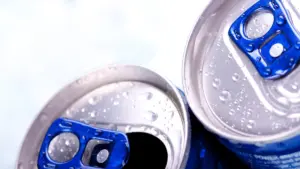Opioid withdrawal symptoms can be painful, confusing, and precarious. Opiates and opioids are strong drugs used to treat pain. Opiates come from plants, while opioids are man-made but work in the same way. Both types are also called narcotics.
If you’ve used these drugs heavily for several weeks or more, stopping suddenly or cutting back can cause your body to react.
This reaction is called opioid withdrawal, and knowing what to expect can help you prepare and stay on track.

Early Stage Symptoms
Between 1999 and 2020, over 800,000 Americans died from drug overdoses, with opioids a major driver. Affecting public health as a whole, opioid-related deaths have contributed significantly to declines in U.S. life expectancy. This is especially true among younger adults, due to early-age mortality and cumulative years of life lost.
For those beginning the path to recovery, understanding what happens in the early stages of withdrawal is essential. Based on the 2020 publication of the Journal of Clinical Pharmacy and Therapeutics, the early withdrawal symptoms generally start within 6–12 hours after the last use of short-acting opioids like heroin or hydrocodone, peaking at 36–72 hours, and lasting up to a week.1
During this early phase, typical symptoms include:
Physical Symptoms
- Watery eyes, runny nose, sweating, yawning, and chills or goosebumps
- Muscle aches and heightened pain sensitivity
- Insomnia and restless legs
Emotional & Psychological Symptoms
- Anxiety, restlessness, irritability, and emotional discomfort
- Mood shifts, including dysphoria (low mood) and stress reactions
- Strong drug cravings
While not life-threatening, these early symptoms can feel intense. They often drive continued drug use to relieve discomfort, especially because emotional stress and insomnia can worsen the experience.
Peak Withdrawal Symptoms
For short-acting opioids (like heroin, fentanyl, oxycodone), peak symptoms happen around 24–72 hours after the last dose. Symptoms begin about 6–12 hours after stopping and last for 5–10 days overall.
For longer‑acting opioids (like methadone), symptoms may start around 30 hours to 2 days post-dose and reach their worst around 72–96 hours.1
Physical Symptoms
During this phase, the flu‑like physical symptoms tend to be the strongest:
- Nausea, vomiting, diarrhea
- Abdominal cramps and stomach upset
- Intense muscle aches and bone pain
- Goosebumps or chills
- Dilated pupils (big pupils) and watery eyes
- Fast heart rate (tachycardia) and high blood pressure
Emotional & Psychological Symptoms
This is also the hardest period emotionally and mentally:
- Strong anxiety and restlessness
- Severe drug cravings
- Low mood or dysphoria (feeling down)
- Irritability or emotional pain
These symptoms happen because the brain chemistry rebounds. Withdrawal causes a surge in norepinephrine from the locus coeruleus, triggering many physical signs like sweating, a fast heart rate, and watery eyes.
At the same time, brain systems that control emotions and stress, such as the amygdala and prefrontal cortex, become disrupted. This can trigger intense drug cravings and emotional distress, making the withdrawal process even more difficult.
Post-Acute Symptoms
When the worst of the initial withdrawal has passed, many people still face a late or post‑acute phase, where symptoms linger for weeks or even months.
Physical Symptoms
These symptoms reflect ongoing body system changes as it adjusts to life without opioids:
- Abdominal cramping that may come and go
- Diarrhea even weeks after detox
- Nausea and vomiting, especially with stress or a poor diet
- Dilated pupils, making the eyes more sensitive to light
- Goosebumps, often triggered by temperature changes
Emotional & Psychological Symptoms
Due to slow recovery in brain areas like the amygdala and prefrontal cortex:
- Anxiety that can spike unexpectedly
- Depression or low mood, often lingering for months
- Irritability and feeling emotionally sensitive
- Trouble sleeping or waking up frequently
- Persistent cravings for opioids, especially during stressful times
This late phase is often why people feel vulnerable even after the physical sickness is over; it’s a gradual healing. Support – whether medical, psychological, or social – helped many stay on track during this period.
Managing Opioid Withdrawal
Going through opioid withdrawal is dangerous. For people who inject drugs, withdrawal increases the chance of doing risky things like sharing needles or even overdosing, especially when they try to ease symptoms on their own.
According to Dr. Ricky Bluthenthal, a public health expert at the Keck School of Medicine at USC:
“Withdrawal is one of the main chronic health challenges for this population… If we’re successful at helping people manage it, then many other health problems can be improved too.”
You don’t have to go through withdrawal alone. There are safe ways to do it, depending on your needs:
- At home, with prescribed medications from your doctor and strong support from family or friends (this is hard and needs to be done slowly).
- At a detox center, trained staff help you through withdrawal.
- In a hospital, especially if symptoms are very bad or if there are other health problems.
Exams and Tests
When you go to a doctor or detox center for opioid withdrawal, they check your overall health to make sure you’re safe and get the care you need.
Step 1: Physical Exam and Questions
Your healthcare provider will:
- Ask about your drug use, how long you’ve used opioids, and any other substances
- Talk about your medical history (past health problems or medicines)
- Do a physical exam to check your body, especially your heart, breathing, and alertness
Step 2: Urine or Blood Tests
To confirm if opioids or other drugs are in your body, the provider may ask for:
- Urine test
- Blood test
These tests help show what substances are still in your system and guide your treatment.
Step 3: Other Important Tests
Depending on your symptoms or risks, more tests may be done to check for problems caused by drug use:
- Blood tests (like CHEM-20 and liver function tests). These check how well your organs, like your liver and kidneys, are working
- CBC (Complete Blood Count). This looks at red and white blood cells and platelets (which help with blood clotting)
- Chest X-ray. Checks your lungs and breathing, especially if you smoke or have a cough
- ECG (Electrocardiogram). A test that shows how your heart is beating. It’s important because some drugs affect the heart
Step 4: Tests for Infections
Because people who use opioids, especially if injecting, have higher risks of certain diseases, doctors may also test for:
- Hepatitis C
- HIV (Human Immunodeficiency Virus)
- TB (Tuberculosis)
These tests are important to protect your health and prevent spreading infections to others.
Long-Term Help After Detox
Most people need ongoing treatment to stay healthy and avoid relapse:
- Support groups like Narcotics Anonymous (NA) or SMART Recovery
- Outpatient therapy (talking to a counselor regularly)
- Intensive programs (like day treatment or rehab)
- Inpatient treatment (live-in facilities for more support)
Nurses or staff (if you’re in a detox center) may check your vitals and give medicine to help with symptoms. You may also get lots of fluids, light meals, and support to help your body heal.
Also, many people dealing with opioid addiction may struggle with depression, anxiety, or trauma. These should be treated, too, because mental health affects your ability to stay in recovery. Doctors may prescribe antidepressants or recommend therapy.
After detox comes the real work, and that’s where OceanRock Health and South Coast Counseling step in. Getting through withdrawal is just the beginning. To truly heal, you need support, guidance, and tools to rebuild your life without opioids.

Source:
- Pergolizzi, J. V., Raffa, R. B., & Rosenblatt, M. H. (2020). Opioid withdrawal symptoms, a consequence of chronic opioid use and opioid use disorder: Current understanding and approaches to management. Journal of Clinical Pharmacy and Therapeutics, 45(5). https://doi.org/10.1111/jcpt.13114







